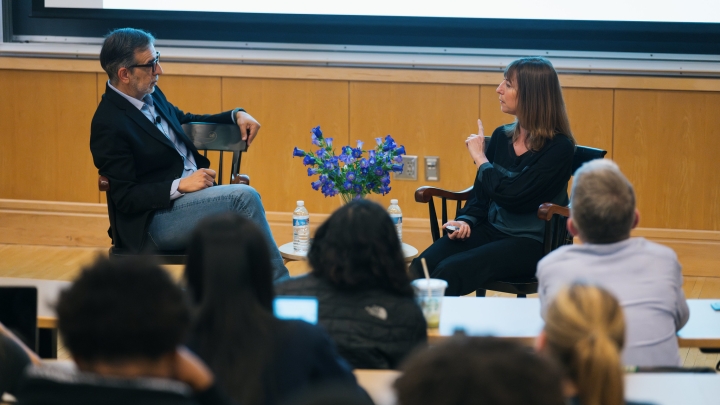Dartmouth Dialogues conversation: Do Israelis and Palestinians really want peace?
As part of the ongoing Dialogue Project, the John Sloan Dickey Center for International Understanding last week hosted Dahlia Scheindlin, a public opinion expert who conducts research and policy analysis on the Israeli-Palestinian conflict, in conversation with Ezzedine Fishere, senior lecturer in Middle Eastern Studies.
The conversation centered on the question of do Israelis and Palestinians really want peace, even as Scheindlin, who is also a columnist for Tel Aviv-based newspaper Haaretz and has worked as a political adviser to candidates in Israel, shared data from recent opinion polling showing support for the war in Gaza remains above 70% among Israelis and support for Hamas among Palestinians in Gaza at over 50%. Polling also showed support for a two-state solution among both Palestinians and Israelis at a 10-year low of about 30%.
Given these numbers, is there a path to peace, Fishere and members of the audience asked during the 90-minute session. Scheindlin offered her own analysis, saying that in times of progress, such as the Camp David Accords in 1978 and the Oslo Accords in 1993, public faith in a solution was also low before talks began, but that political leaders emerged who took bold action, pulling public support with them after progress was made.
Given time, concerted international pressure, and the emergence of Israeli and Palestinian leadership willing to lead rather than follow public opinion, Scheindlin said it was still possible.
“I think they could set themselves on a course and actually set up the steps that would be needed—institution building, elections, Israelis coming to terms with the fact that they have to work out a map of the plan for how to do it—those are the steps that could be taken,” she said.
